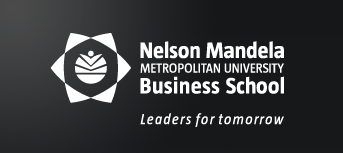Summary of Keynote Address: 2014 Annual Conference of the SA Computing Lecturers Association
By Professor Steve Burgess
Director: Nelson Mandela Metropolitan Business School
Professor Burgess opened the address by noting several aspects of the global economy. These included rapidly accelerating globalisation and the demographic ageing, slow growth, market saturation and rising levels of sovereign debt in traditional high-income countries. Nature and content of competition changing rapidly, due to several factors, and there are new requirements for sustainable product and process innovation.
The result is that more organisations today find that there is more to measure and manage than ever before, especially in emerging markets. The science and art of business is looking a lot like engineering and there is an increasing need for information and communications technology (ICT) advancement and skills development.
The new need for information management is accentuated by the diversity in and across emerging markets. For example, cross-cultural psychologists agree that the expected convergence in world cultures is not taking place despite globalisation. Emerging markets remain high in cultural embeddedness and hierarchy, which oppose the cultural autonomy and egalitarianism of high-income countries.
There is a new need to understand this complexity, which has focused attention on institutions theory, drawing on economics and sociology and becoming the subject of several recent Nobel prizes. Institutions may be hard (e.g., a church or court) or soft (e.g., cultural value priorities). They are “rules of the game” that people use within a society to structure interactions and reduce uncertainty in human exchange. Institutional subsystems: Socioeconomic, cultural, regulative pillars of societies.
As an example, Burgess highlighted the central role that ICT plays in helping integrate multiple stakeholder approaches that support sustainable enterprise in EMs. The illustration showed how acquiring and sharing information widely within an organisation can help in crafting more responsive strategies that promote sustainable business models. Choosing such a market oriented approach is even more important in emerging markets according to recent comparative studies.
Having set the stage, Burgess spoke about two trends that are important for ICT educators to consider.
The first trend concerned the more important role being played by ICT in a world undergoing an unparalleled transition. Today, for the first time in history, more than 1 billion people moving from rural, agrarian lifestyles to modern consumer living standards in the span of a lifetime. It provides the platform for new ways to specify multisource datasets, make sense of heterogeneity, and construct informative descriptive, predictive, and normative models that help organisations gain insights into this complexity.
This new model-based approach combines quantitative, qualitative and mixed methods modelling approaches to not only gain insights but move from observation to predictive models of the firm.
The advent of this new integrated analytical approach requires ICT and statistical competencies as core elements, to drive the product, service and process improvements that are required for survival in the new globalised environment. It is behind the growing competitiveness of firms such as Google, WalMart and Unilever. However, recent advances put the same competencies in the hands of small and medium businesses that understand analytics and their use.
The second trend concerned the explosion of new analytical approaches. Behind the simplicity of ICT interfaces, firms now model one’s credit-worthiness, product preferences, and needs using sophisticated computer models. Using examples from several well-known firms, Prof Burgess showed how firms have improved profits by hundreds of millions of Rands through integrated database analysis, application of customer attraction, cross-selling and churn models, promotional and personal selling resource allocation models, geographical information systems and predictive forecasting models.
Research clearly shows that advances up the ladder of analytics management lead to rapid improvements in the financial, social and environmental bottom-line. He noted that adopting the new rigorous analytic approaches has contributed to dramatic increases in human resource productivity, including employee well-being and many measures of financial and nonfinancial performance. Some of the most exciting advances are coming from new analytic approaches such as real-time management analytic systems, demand chain management, supply chain and logistics, recycling and waste reduction and value-chain modelling.
The new approaches have the potential to improve the products and services that firms present to prospective customers as well as a vehicle to ultimately allow us to live in much greater harmony with other people and the environment.
Burgess concluded that ICT will play an increasing role in helping firms untangle the complex environment of business and to respond with appropriate analytics-based systems and processes. While the questions business people ask seem the same, new answers are required.
Burgess concluded by arguing that we are witnessing the advent of a new era. Globalisation has been accompanied by the rise of EMs. This has caused the nature and content of competition to change rapidly, requiring better insights than ever into marketplace dynamics and diversity. The new requirements for competitive success coincide with the introduction of a new, integrated approach to business, which firms ignore at their peril.
We are living in one of the most exciting eras that business has ever known and ITC can play a key role in realising our potential! As all of this implies, it is no longer enough to rely on outmoded theories of the firm. New contingency theories of the business must be developed, relying on processes of insight, intent and interaction that resemble engineering more than art or science. Unless all stakeholders, including government and labour must be brought into the equation and be willing to play their role-unless ICT human resources are produced by our universities, the global sustainability of South African business will not be assured.
In closing, Burgess recalled that Madiba once said, “Periods of fundamental social and political change always highlight, and make explicit, relations and linkages which in other times are more assumed and implicit.” This is such a time of change.
A new era of analytics and business has arrived and promises to unlock new pathways to growth and profitability.





